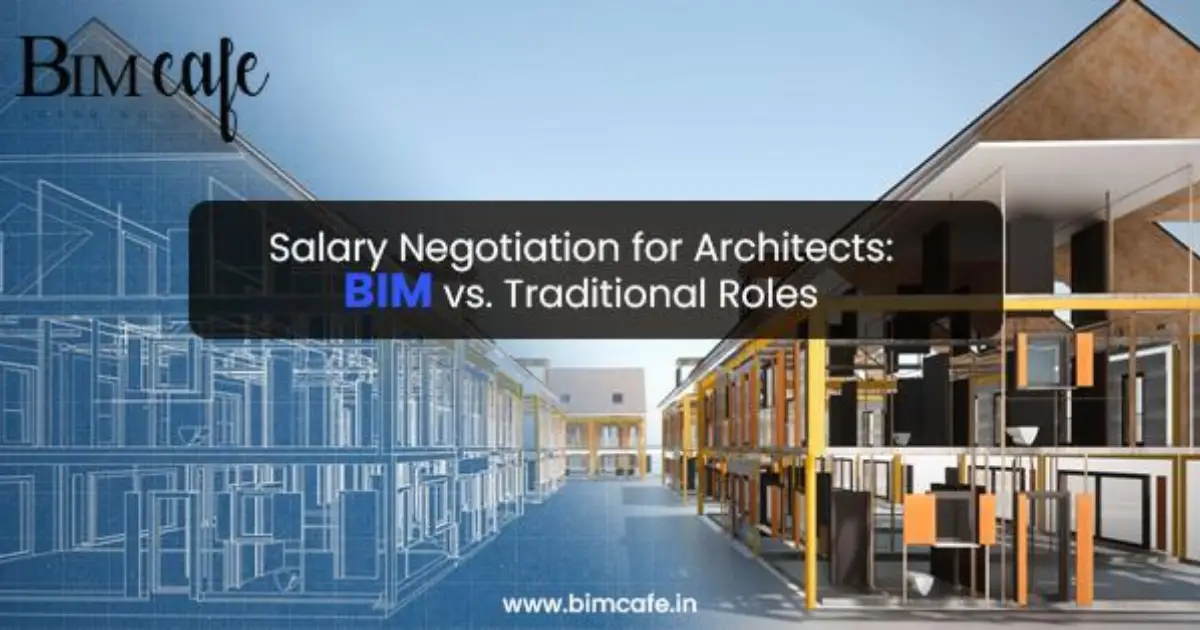
Author: Devika R
October 23, 2024
12 min read
Introduction
Salary negotiation can be daunting, especially for professionals in fields like architecture. Understanding the market value of your skills, particularly in the context of emerging technologies like Building Information Modeling (BIM), is crucial. This blog post will delve into the salary differences between traditional and BIM architects and provide essential tips for successful salary negotiation during interviews.
Traditional vs. BIM Architect Salaries

The salary gap between traditional and BIM architects can vary significantly depending on location, experience, and the specific skill-set involved. However, BIM architects generally tend to command higher salaries due to the specialized knowledge and expertise required to work with BIM software and methodologies.
Key factors influencing salary:
- Location: Urban areas and regions with high demand for architectural services often offer higher salaries.
- Experience: Years of experience and the complexity of projects handled directly impact earning potential.
- Skill-set: Proficiency in BIM software, programming languages, and project management tools can increase your market value.
- Company size and industry: Larger firms and industries with high technological adoption may offer better compensation packages.
Interview Tips for Successful Salary Negotiation
- Research the Market: Gather information about average salaries for architects in your region and industry. Use online resources, industry reports, and networking to get accurate data.
- Quantify Your Achievements: Prepare specific examples of how your skills and experience have contributed to successful projects. Highlight the tangible benefits you’ve brought to previous employers.
- Be Confident and Assertive: Demonstrate your value and belief in your worth. Avoid being hesitant or apologetic during salary discussions.
- Practice Active Listening: Pay attention to the interviewer’s cues and questions. This will help you tailor your responses and understand their expectations.
- Be Flexible: While it is important to advocate for your desired salary, be open to discussing other compensation elements like bonuses, benefits, or professional development opportunities.
- Avoid Premature Commitments: Do not rush into accepting an offer without carefully considering all aspects of the package. Take time to evaluate the total compensation and benefits.
- Have a Plan B: If negotiations do not go as planned, be prepared to walk away. Having other job opportunities in the pipeline can give you more leverage.
Comparison of Traditional and BIM Architects: Beyond Salaries
| Feature | Traditional Architect | BIM Architect |
|---|---|---|
| Efficiency | Manual processes, prone to errors and rework | Automated workflows, reduced errors, improved productivity |
| Collaboration | Limited collaboration among team members | Enhanced collaboration through centralized data sharing and real-time updates |
| Design Exploration | Limited design options | Ability to explore numerous design variations quickly and easily |
| Cost Management | Difficulty in tracking and managing costs | Accurate cost estimation and tracking throughout the project life-cycle |
| Sustainability | Limited ability to assess environmental impact | Integrated tools for assessing energy efficiency, resource consumption, and sustainability |
| Risk Management | Potential for unexpected issues and delays | Improved risk identification and mitigation through data-driven analysis |
Salary Differences: India vs. Abroad
India:
- Traditional Architect: Average annual salary ranges from ₹4 lakhs to ₹10 lakhs
- BIM Architect: Average annual salary ranges from ₹6 lakhs to ₹18 lakhs
Abroad:
United States:
- Traditional Architect: $60,000 – $120,000
- BIM Architect: $80,000 – $150,000
United Kingdom:
- Traditional Architect: £35,000 – £65,000
- BIM Architect: £45,000 – £80,000
Australia:
- Traditional Architect: AUD 60,000 – AUD 100,000
- BIM Architect: AUD 75,000 – AUD 120,000
Note: These figures are estimates and can vary depending on factors such as company size, location, experience, and specific skill-set.





